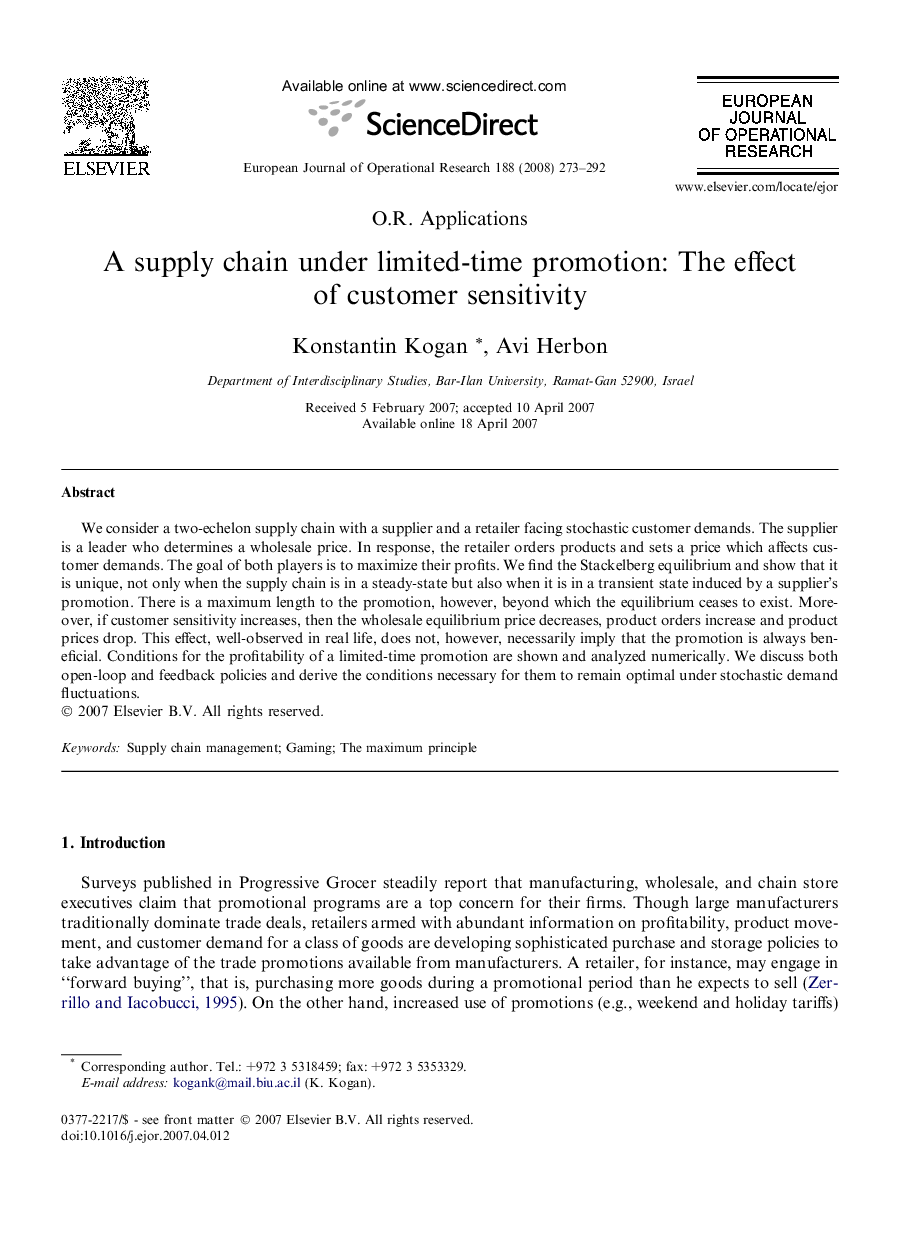| Article ID | Journal | Published Year | Pages | File Type |
|---|---|---|---|---|
| 477606 | European Journal of Operational Research | 2008 | 20 Pages |
We consider a two-echelon supply chain with a supplier and a retailer facing stochastic customer demands. The supplier is a leader who determines a wholesale price. In response, the retailer orders products and sets a price which affects customer demands. The goal of both players is to maximize their profits. We find the Stackelberg equilibrium and show that it is unique, not only when the supply chain is in a steady-state but also when it is in a transient state induced by a supplier’s promotion. There is a maximum length to the promotion, however, beyond which the equilibrium ceases to exist. Moreover, if customer sensitivity increases, then the wholesale equilibrium price decreases, product orders increase and product prices drop. This effect, well-observed in real life, does not, however, necessarily imply that the promotion is always beneficial. Conditions for the profitability of a limited-time promotion are shown and analyzed numerically. We discuss both open-loop and feedback policies and derive the conditions necessary for them to remain optimal under stochastic demand fluctuations.
